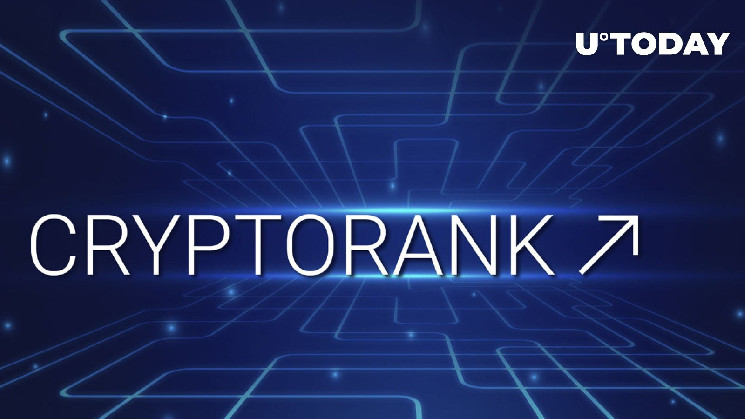CryptoRank, a popular analytical and consulting portal, released an overview of decentralized perpetual exchange services. It highlights the largest and fastest-growing on-chain derivatives exchanges and summarizes the latest fundraising announcements.
What are decentralized perpetual exchanges, and why are they popular?
Decentralized perpetual exchanges should be referred to as a class of fully on-chain (noncustodial) cryptocurrency trading platforms for contracts based on digital assets. Not unlike traditional perpetual exchanges (e.g., BitMEX, ByBit and so on), they allow crypto enthusiasts to trade perpetual contracts, i.e., derivatives without expiration dates.
Decentralized perpetual exchanges are quickly gaining popularity in the world of #DeFi, offering investors a new way to generate real yield. In this post, we will explore the concept of #RealYield and how it relates to perpetual exchanges.
— CryptoRank Platform (@CryptoRank_io) March 14, 2023
👉 https://t.co/vE5C3PJzTb pic.twitter.com/L1F2dHnqLX
Decentralized perpetual exchanges become increasingly popular: they unlock the same opportunities with centralized platforms (largely, for leveraged positions), but remove the necessity to rely on third-party custody.
Such platforms are the only way to trade leveraged perpetuals with no KYC and without other centralization risks.
Decentralized perpetuals overview: GMX, dYdX, Gains Network, what else?
In its new review, the CryptoRank team stressed that on-chain derivatives products registered a significant increase in liquidity locked in last year that signals increased interest in and massive adoption of this type of service.
CryptoRank shared the ranking of crypto derivatives platforms by average net fees raised in 24 hours (performance for the last 30 days is taken into account). GMX becomes the undisputed leader here with its $1.2 million in fees daily. dYdX processes $274,000 in fees, while Gains Network users pay $187,000 daily.
When it comes to fully diluted market capitalization, the following services are the leaders of the segment:
|
Name of service |
Token |
Fully diluted market cap, $ million |
|
GMX |
GMX |
980 |
|
dYdX |
DYDX |
2,420 |
|
Gains Network |
GNS |
216 |
|
Vela Exchange |
VELA |
236 |
|
Level Finance |
LVL |
330 |
|
MUX Protocol |
MCB |
31.9 |
|
Mycelium |
MYC |
10.8 |
Although the valuation of the underlying token does not necessarily correlate to the progress of a product, it is a reliable metric of its usage and massive adoption.
As displayed above, dYdX (DYDX), one of the oldest decentralized finance services, remains the leader when it comes to fully diluted market capitalization. In these terms, the segment still looks very concentrated: Level Finance (LVL) is the third largest decentralized derivatives token while its capitalization is almost 8x lower than that of dYdX (DYDX).
Injective Protocol (INJ) secures a whopping $150 million on insecure market
The notable interest of venture capitalists (VCs) in decentralized perpetual exchanges is yet another signal of bright prospects for this sphere. CryptoRank experts tracked 13 fundraising campaigns in recent months to indicate the largest and most successful.
CryptoRank experts attributed the success of the fundraising campaign to the innovative design of the protocols:
Many derivatives crypto projects are at the forefront of new developments in blockchain technology and decentralized finance, and are pushing the boundaries of what is possible in the financial industry. This is an exciting prospect for VC firms that are looking to invest in cutting-edge technology.
Injective Protocol (INJ), with its breathtaking $150 million raise led by heavyweight VC conglomerate Pantera Capital, is the leader of this ranking. Despite the fact that the Injective (INJ) ecosystem features numerous products, its decentralized derivatives segment is its backbone element.
Also, recent months witnessed a number of successful seed and preseed fundraising efforts backed by high-profile VCs. Veax Labs (VEAX) and Tsunami Finance (NAM) secured $2.5 million in total, while Mirana Ventures, Circle and dozens of other VCs backed the start-ups in their fundraising efforts.
Perennial's $12 million seed funding and Panoptic's $4.5 million fundraising yielded contributions from Polychain Capital and other reputable venture capitalists.
 u.today
u.today
